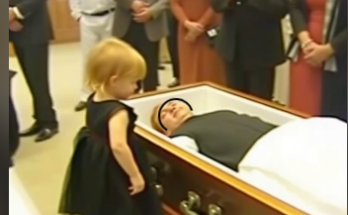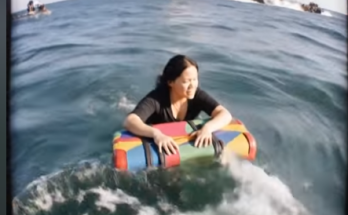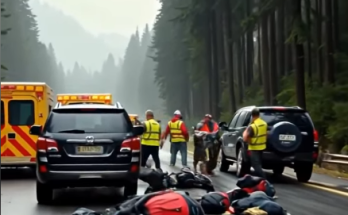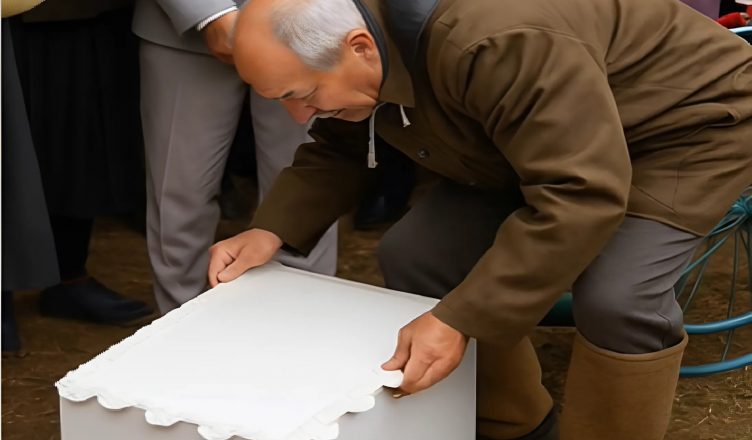
The air at the cemetery was heavy with silence. Not the kind of silence that comforts, but the kind that crushes your chest and makes it hard to breathe. Around the small white coffin stood grieving family and friends, their faces pale, their eyes swollen with tears. The only sound that broke the suffocating stillness was the desperate barking of a dog — a small mutt named Bonya, who belonged to Liza, the seven-year-old girl now lying cold inside that box. Or so everyone thought.
Liza had died suddenly — or that’s what they were told. A “tragic accident,” the doctors said. She simply didn’t wake up one morning. No pain. No suffering. Just a peaceful departure, like a candle snuffed out in sleep.
But her grandfather wasn’t convinced.
He stood a few feet away, his hands clenched in the deep pockets of his old overcoat, eyes fixed on the coffin’s pristine lid. He had known Liza better than anyone. Raised her when her parents worked night shifts. Told her bedtime stories. Watched her learn to ride a bike. Something gnawed at him — an inner alarm that wouldn’t shut off. And then there was the dog.
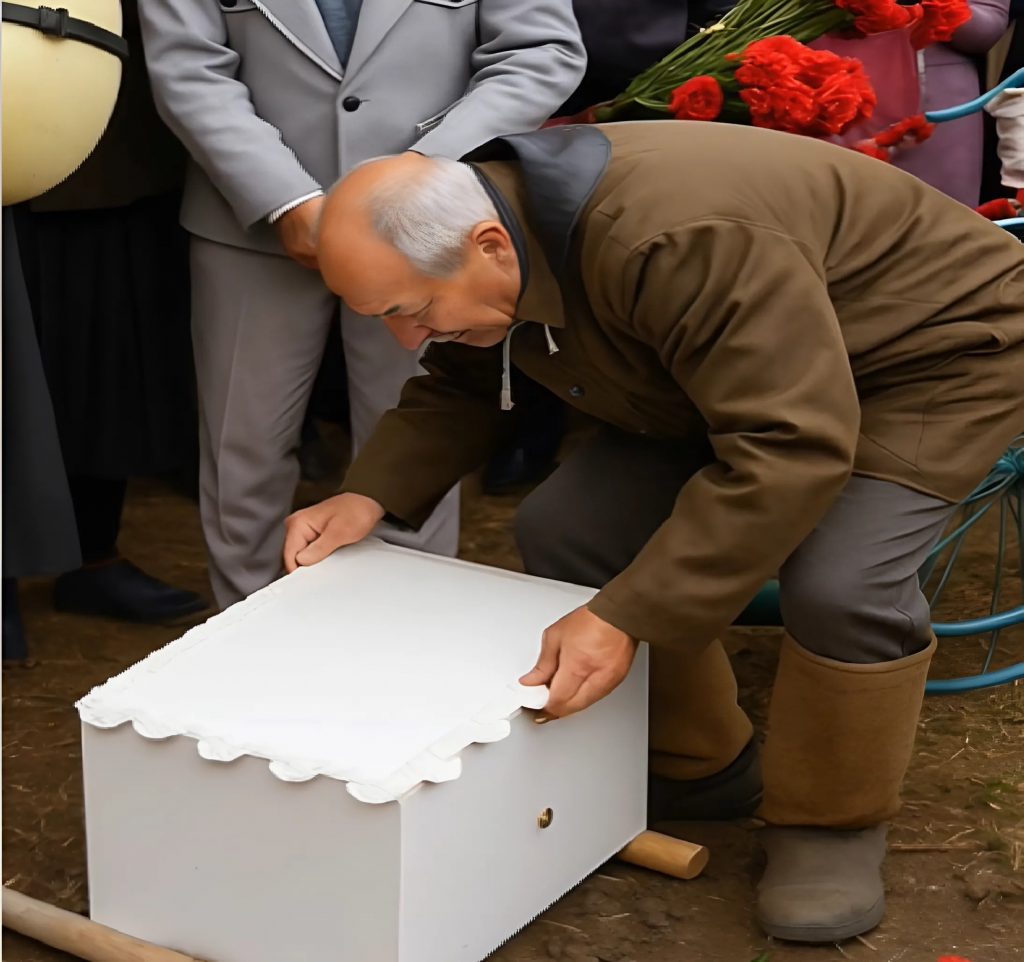
Bonya was acting like an animal possessed — lunging, howling, trying to claw her way onto the casket, as if trying to reach the girl inside. People assumed she was mourning in her own way. But the old man knew better. Animals felt things. Sensed things. And so did he.
He took a step forward.
Whispers rustled through the crowd.
— He’s lost his mind…
— Let him be, it’s grief…
— Don’t do it, old man…
But the grandfather didn’t stop. His heartbeat thundered in his ears as his hand touched the edge of the lid. And then… he heard it. A sound. Faint, fragile, almost non-existent. Like a sigh. Or a whimper.
A chill ran down his spine.
Someone tried to stop him.
— No! Don’t! Please, don’t torture yourself!
But he was already undoing the clasps, breaking the seals, yanking at the lid like a man possessed.
And when the coffin finally opened — everything froze.
Inside, Liza lay with her eyes half-closed, her chest barely moving, her lips twitching. A single tear trickled down her cheek.
She was alive.
Gasps erupted. Screams. Someone fainted. Phones were dialed in trembling hands. Within minutes, paramedics arrived. Liza was rushed to the hospital. The diagnosis? A rare condition causing an extremely deep coma that mimicked death. Her vital signs had been so weak that even the doctor who signed the death certificate mistook her for dead.
She had been buried alive — almost.
And had it not been for her grandfather — and Bonya — the little girl would have been placed under six feet of soil. Alive. Conscious. Terrified.
After several days in intensive care, Liza finally regained full awareness. Her voice was weak, but her words were unforgettable.
— Grandpa… I heard you calling me…
She remembered it. She had heard the crying, the prayers, the closing of the casket. She had been trapped in a nightmare, unable to move, scream, or breathe. Waiting for death.
The story spread like wildfire. The funeral that turned into a miracle. The grandfather who trusted his instincts over official documents. The dog who wouldn’t give up. It shocked the community. It raised questions. How often do medical professionals rush through death declarations? How many similar cases were never caught in time?
An investigation was launched. The young intern who declared her dead was suspended. The hospital issued an apology. But for the family, apologies couldn’t erase what might have happened.
Today, Liza is alive and well. She lives in another town now, a quiet place with a new school, new friends, and a very old dog. Bonya, now nearly blind, still curls up beside her bed every night.
And her grandfather? He still visits that cemetery once a month. Not to mourn, but to remember. At the very spot where his granddaughter nearly vanished forever, he placed a small bench. And carved into the wood is a message that speaks louder than any eulogy:
“If your heart speaks — listen. Even when the world says you’re wrong.”
A chilling tale. A narrow escape. A reminder that sometimes love knows what science forgets — to feel.

